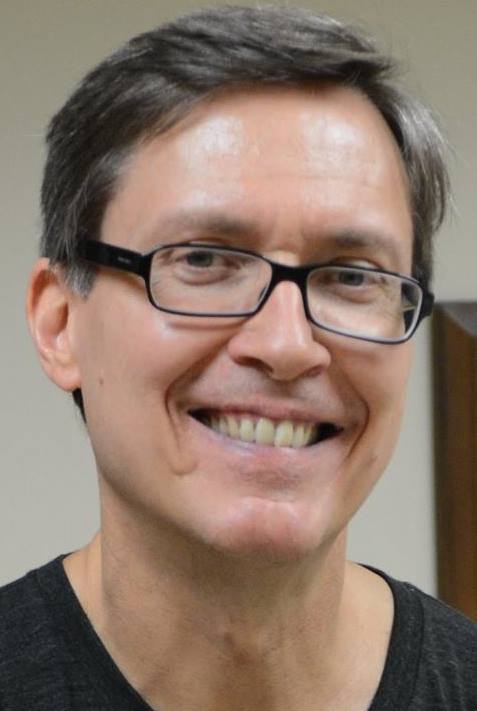A little over three years ago I decided to leave a church where JoAnne and I had been active for 10 years and find a new place to call home. I checked out a few local churches and did not find what I was looking for. I could not tell you exactly what I was looking for, but it wasn’t what I found. A former neighbor lived in Decatur and shared a few things about his church on Facebook. Those Facebook posts inspired me to make a trip that takes 40 minutes on a Sunday when there is no traffic to check out Oakhurst Baptist Church.
I drove past the church when I got there because there was no sign to mark the property. I turned around when I got to Oakhurst Presbyterian Church and retraced my drive to an old building that looked like some kind of public place and went inside. I found Leon Clymore, a friendly, ruddy faced, white-haired man organizing things in the foyer of Oakhurst Baptist Church. I was in the right place.
I asked about Sunday School and Leon said he would take me to the Patchwork Class with him. That was a little over three years ago. I’ve been in a lot of Sunday School classes in my life. I’ve taught a lot of Sunday School classes in my life. Patchwork is my favorite.
The Patchwork Class doesn’t really tolerate teachers. We teach ourselves. Leadership rotates every week. We call the role teaching, but facilitation would be a more accurate label. We begin a study of Genesis tomorrow without a designated book as our guide. We agreed to be prepared to discuss chapters 1 and 2 on the creation of the universe and of human beings. That should keep us busy.
Here is my recommended study plan for anyone who wants to study the book of Genesis seriously: Read the chapters of Genesis over and over again. Read a different translation every day if you want variety, but stay focused on the words of the Bible itself. If you have a question about a person, place, thing, or concept, consult a Bible dictionary. My favorite is the HarperCollins Bible Dictionary (Revised and Updated). Very few people, including preachers, should consult a commentary because commentaries hinder your listening to God.
Reading Scripture is an important part of my daily practice of prayer. A small part of prayer is me talking to God. A big part is me listening. Reading Scripture is a great way to listen to God. My personal practice is to read two chapters of the Hebrew Scriptures, one chapter of the Christian Scriptures, and five Psalms every day. During Patchwork’s study of Genesis, I plan to read the assigned passage for that week every day too.
I don’t follow a set formula when reading Scripture, but there are a variety of questions that can be helpful to consider when reading a passage. What does this tell me about God? What does this tell me about how to treat other people? What does this tell me about what it means to be human? Does this passage have anything to say to me specifically in my current circumstances? How does this passage compare or contrast with another passage? What do contrasting passages have to say about how I should understand the Bible, God, other people, myself?
Today, what was most prominent to me in reading Genesis 1 and 2 was the recurring statement, “God looked at everything he had made, and he was very pleased.” Seeing God’s pleasure with his creation made me think maybe I am on the right track. You see, I have been reviewing my days every evening lately. And every day I have been grateful for dozens of things. How my work has gone, how my time with my wife has gone, how my meals have tasted, how my exercise has gone, moments of contact with neighbors and friends and associates. I’ve felt as if I have been making good days with God’s help. Genesis reassures me that good days are part of the plan.
I don’t imagine that what was most prominent in my reading of Genesis 1 and 2 today will be most prominent for me every day. I don’t expect God to say the same thing to me every day and I don’t expect he will have the same thing to say to every participant in my Sunday School class. The joy of studying the Bible together is learning what other faithful listeners are hearing and gaining a fuller understanding of the one who calls us together.


Recent Comments